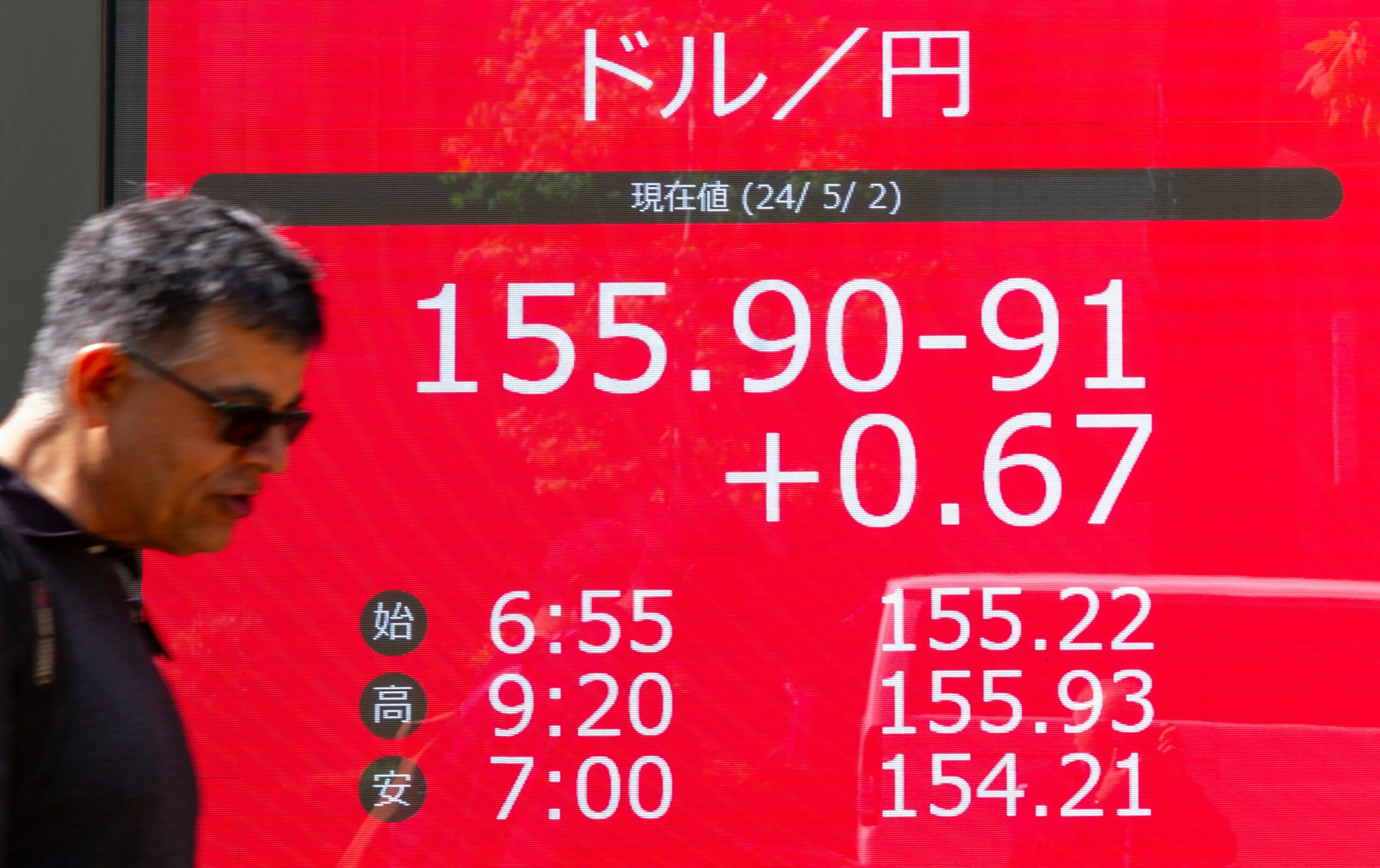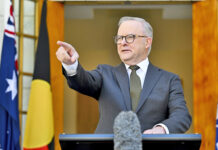HONG KONG (AFP) – The yen weakened Thursday following another surge against the dollar that fuelled speculation Japanese authorities had intervened for a second time this week, after Federal Reserve boss Jerome Powell warned interest rates would stay higher for longer.
Powell’s remarks, however, were tempered by his assurance that borrowing costs would not likely be hiked again, soothing worries in some quarters that the bank’s battle to bring inflation back to its two per cent target would need to be stepped up.
While US traders were spooked by the prospect that rate cuts were still some time off, analysts said the Fed had been less hawkish than feared.
The Fed also said it would slow down the pace at which it shrinks its balance sheet – having bought up vast amounts of bonds previously to keep rates low – which eased upward pressure on Treasury yields.
The comments came after a string of data at the start of the year saw inflation come in above expectations, while the economy and labour market remain in rude health.
“The statement and news conference should not come as a surprise to investors,” said Tai Hui at JP Morgan Asset Management.
“Recent Fed speech has acknowledged the lack of progress on inflation and the desire to maintain the current level of policy rates for longer.
That said, it does seem clear the committee remains biassed to cut rates, but any policy easing will be determined by how inflation develops over the next few months.
“While inflation seems sticky, it’s not ‘sticking’ at a level that is causing a surge in wages, eroding consumption, or lifting inflation expectations, comfortably putting stagflation fears to rest.”
Soon after the announcement, the yen soared around three per cent to 153.04 per dollar, causing suspicion that Japanese officials had stepped into forex markets. It was sitting above 156 Thursday in Asia.
A rally on Monday – after the yen hit a new 34-year low of 160.17 – led to similar speculation.
The government was tight-lipped on whether it had bought yen, though Masato Kanda, Japan’s top currency official, told Bloomberg News intervention data would be disclosed at the end of the month.
Bloomberg analysis of central bank accounts suggested that Monday’s move was likely an intervention by Tokyo worth around USD35.4 billion.
“It would certainly appear to have the characteristics of an intervention,” Nathan Thooft, of Manulife Investment Management, said.
“Repeated attempts certainly send a message to the market and while it may not fully hold, it should have some impact on preventing further meaningful weakness.”
Equity markets were mixed in early Asian trade as investors returned from a midweek holiday.
Hong Kong resumed its rally to rise for an eighth day, while Tokyo, Sydney and Singapore were also up.
However, Seoul, Taipei, Manila and Jakarta fell, with Wellington flat.
Oil bounced slightly, having tumbled more than three per cent Wednesday on data showing US stockpiles ballooned last week by the most since February.
The commodity has also come under pressure from hopes for a ceasefire in the Middle East conflict, with US top diplomat Antony Blinken urging Hamas to accept a Gaza truce plan.
The Islamist group has said it will respond “within a very short period” to a plan proposed by mediators to halt the fighting for 40 days and exchange dozens of hostages for many more Palestinian prisoners.




















































